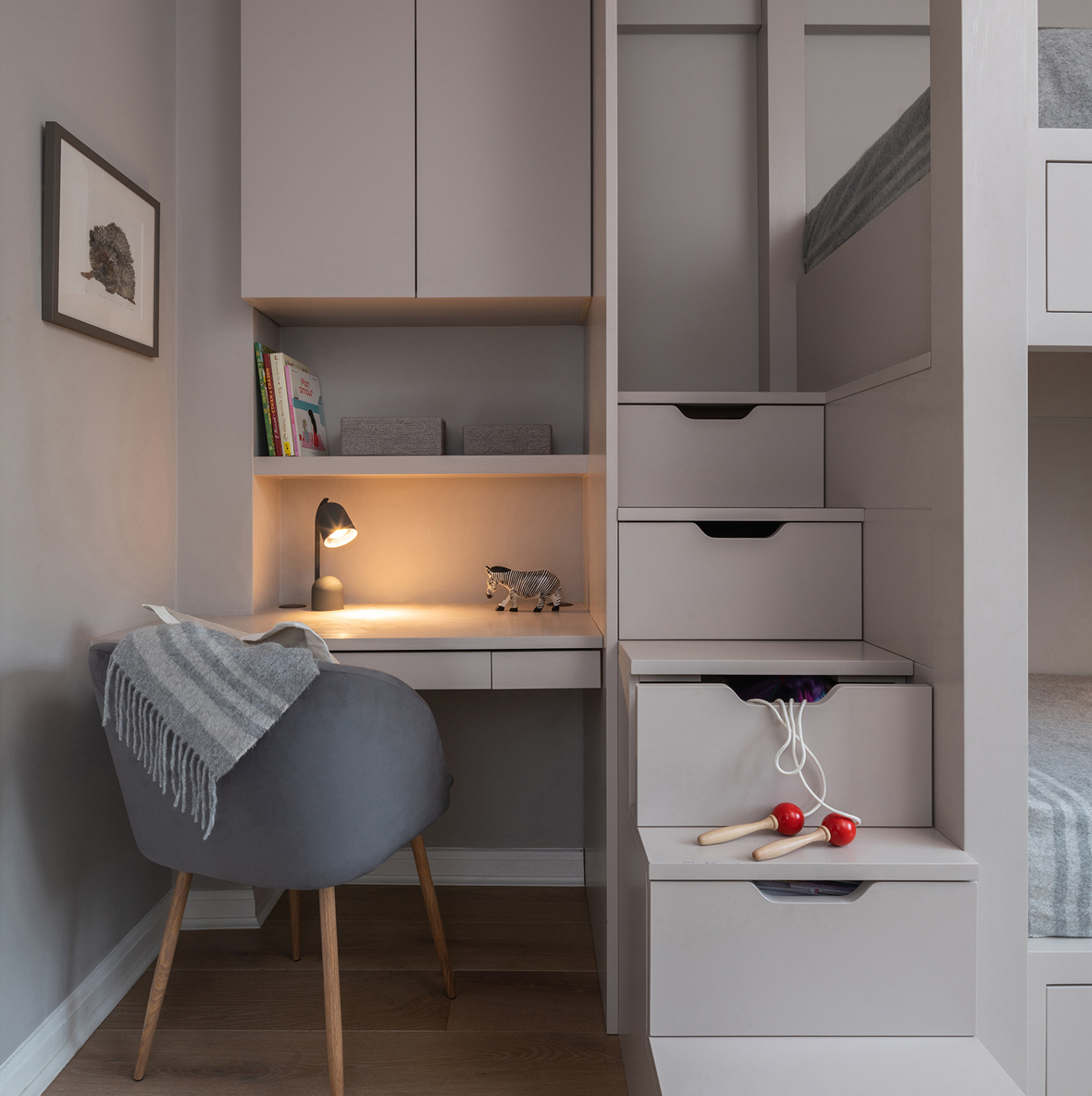Is it a basement extension or a basement conversion?
There are many reasons why basement conversions are so popular in London. But before we get into what permissions you might need for a basement conversion, we’ll explain how we differentiate between a basement conversion and a basement extension. If you are planning to extend or enlarge your basement, the following articles may be more helpful to you:
Do I need planning permission for a basement extension?
What are the planning rules for basement extensions?
How much does a basement extension cost?
For the purposes of this article at least, we are referring to a basement conversion as the renovation of an existing basement space and changing its use.
Featured image from Melanie, interior designer on Design for Me. Click here to see her full profile and shortlist her for your project.
Do you need planning permission for a basement conversion?
In most cases it shouldn’t be necessary to get planning permission to convert an existing basement space into a habitable room. However if any building work, excavation or demolition work is required you will need to check with your local planning authority and their specific criteria on basements.
How much can I dig down without needing planning permission?
Significant excavation works are likely to require planning permission, but it will usually be possible dig down in an existing basement room to create additional headroom to make the space habitable. For example if your cellar is 1.5 metres, it should usually be permissible to increase it to 2.2 metres without requiring planning permission. However, you should always check this with your local council as they may have specific planning restrictions or compliance procedure relating to any excavation work.
What can I turn my basement into? Design and planning considerations
- Light
If you are converting your basement into a habitable room, such as a bedroom or study, you will need some natural light either using a light well or skylight. If you were to include a lightwell, railings or skylight at the front of your property (or anything that affects the external appearance of your house), it’s likely that you would need to get planning permission.
However, there are other uses that may not require natural light, such as a utility room, wine cellars or storage.
- Views
Ideal in most habitable spaces for general health and wellbeing. Depending on the use (and how long the room is likely to be used for at a time), using light wells and introducing foliage can help create visual interest.
- Ventilation
Even if natural light is not possible, you should still consider ventilation to the space – either natural or mechanical.
- Space (both floor space and head height)
- Drainage
- Waterproofing and insulation
Other statutory regulations
- You will be required to get Building Regulations approval if you are undertaking any building work, demolition or excavation.
- You may need to seek a Party Wall Agreement with your neighbour(s):
- when excavation is within three metres of a neighbouring structure
- or when excavation would extend deeper than that structure’s foundations
- or within six metres of the neighbouring structure and which also lies within an area defined by a 45 degree line from that structure.
- If you are making any alterations to the party wall.
- If your property is leasehold you will need to seek freeholder permission. Most residential leases require some form of landlord permission for alterations.
Getting started
You should always seek advice from your local planning authority prior to the design stage. However, with complex projects it’s usually best to do this via your architect, who will know the best way to approach them and present your intentions.
It’s likely that you will need a team of design professionals to help you prepare your planning application. The first step is usually to hire an architect, who can then help you hire other necessary professionals (usually a structural engineer, and party wall surveyor) and ensure you meet the appropriate statutory obligations.
Read more about basement development from our blog:
Basement extension ideas and inspiration
How much does a basement extension cost?
Finding the right architect for your basement conversion
Design for Me is a free platform to help you quickly find the right design professional for your home project. My name is Emily Barnes and as a residential architect myself, I started Design for Me after finding that talented and innovative smaller firms and individuals, who are perfectly placed to design new homes, extensions and renovations, can often get buried under the online profiles of large commercial companies.



